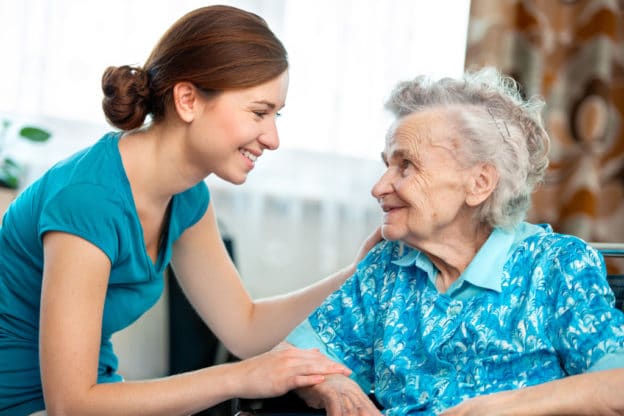
Everday heroes care for loved ones with Alzheimer’s disease
Each year, more than 15 million caregivers give 18 billion hours of their time, unpaid, to care for loved ones with Alzheimer’s disease. Caregivers represent a crucial aid to a person with Alzheimer’s.
Approximately one in three caregivers is age 65 or older, and about one-quarter of dementia caregivers are “sandwich generation” caregivers, meaning that they not only care for an aging parent, but also for children under 18.
Caregivers of people with Alzheimer’s and related dementias provide care for a longer duration than caregivers of people with other conditions (79% versus 66%) and 57% of family caregivers provide care for four or more years. More than six in ten (63%) Alzheimer’s caregivers continue having care responsibilities for the next five years compared with less than half of caregivers of people without dementia (49%).
Caregivers take on the responsibility of helping with very intimate tasks for the person with dementia or Alzheimer’s. Nearly 80% of older adults with dementia receive help with a personal care activity such as bathing, dressing, grooming, or eating. Many family caregivers are still working and caring for their families, too. Caring for their aging loved ones means managing medications, doctor appointments, financial planning, and long-term care insurance on top of the needs of their own household.
As such, the responsibility of being a caretaker takes a toll on the health of the caregiver. Many caregivers put their personal well-being on the backburner while caring for a loved one. Nearly 60% of Alzheimer’s and dementia caregivers rate the emotional stress of caregiving as high or very high.
CaregiverStress.com lists eight tips to help stay positive and optimistic as a caregiver, and to focus on your own self-care:
- Find happiness through health.
- Remember you are doing your best.
- Laugh to lighten your load.
- Look for the good.
- Speak kindly to yourself.
- Lean on positive people.
- Keep it simple—don’t set yourself up to fail with unrealistic goals.
- Take time for yourself.
When stepping into the role of caregiver, it is important to remember that you are not alone and there are resources to help. The Alzheimer’s Association offers both peer and professionally led in-person support groups for caregivers and others dealing with the disease. There are also specialized groups for children, individuals with younger-onset and early-stage Alzheimer’s, and more. Message boards and blogs give caregivers a place to detail their struggles and triumphs in the tumultuous ride of caring for a person with Alzheimer’s.




